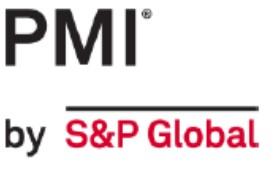The Global Purchasing Managers’ Index (PMI) for manufacturing produced by J P Morgan using the data from S&P Global was unchanged from the March reading of 49.6 with divergent factors behind this. Output edged up again and although this was led by the consumer goods sector, there was also a positive trend for investment goods – there was also an improvement in employment. However, the index was dragged down by another fall in new orders, including for the investment goods sub-sector; suppliers’ lead times shortened to the greatest extent since May 2009 and this also contributed negatively to the overall PMI calculation.
For the UK, the manufacturing PMI edged down to 47.8, although this was significantly better than the flash estimate from 10 days earlier (46.6). Again, there is bad news and good news; both output and new orders fell – indeed, all five elements of the calculation indicated a deterioration in activity. There are a couple of pieces of goods news with output rising in the investment goods industries (while falling in the other groups) and overall business optimism increased to its highest level for 14 months.
For the Euro-zone, there was a significant fall in the PMI reading at a 35-month low of 45.8 as output fell for the first time this year and new orders declined fell at the sharpest pace since last December. However, the fall in the PMI was helped by another survey-record shortening of suppliers’ delivery times. All of the 8 countries included in the Euro-zone analysis had a lower reading than in March, although to differing degrees with a large fall for Italy taking them (and Spain) back into negative territory, while Germany only saw a marginal reduction (but from an already low level).
Three of the four other EU countries – Czechia, Poland and Sweden – have a significantly negative PMI with the first two of these saw a reduction compared to the March level (Sweden was unchanged). Hungary, which has always had a volatile trend for the PMI saw a large improvement from what was already a significantly positive reading.
The other two European countries that we cover – Switzerland and Turkey – had divergent positions for April; Switzerland, which for a long time was ahead of most other countries – saw its negative manufacturing PMI slip further into negative territory with its reading of 45.3 being the lowest since the initial stages of the pandemic, while Turkey recorded a modest improvement in its PMI with its reading of 51.5 the highest since December 2021.
There was also a mixture of trends in Asia with three pairings of trends. India and the ASEAN group of countries saw an improved positive reading; Japan and South Korea also had a better reading than in March but in this case the PMI is still below the crucial 50 level while China and Taiwan saw a lower reading, with the former moving from a neutral figure in March and the latter seeing a more negative level.
Finally, in the Americas, both the USA and Canada both had a higher reading that took them back above 50 following negative readings in March while Columbia saw an improvement in its positive PMI and Mexico was static at a positive level. In this continent, the weak spot is Brazil where the negative reading from March deteriorated further in April.
Across the 27 countries/regions that we cover in this analysis, 10 had PMI readings above 50, with a handful moving in both directions across the crucial 50 level. The highest were in Hungary (61.9) and India (57.2), with the former having by far the largest improvement on the March (+5.9 points). In the opposite direction, the weakest readings were in Austria (42.0) and Czechia (42.8) with the largest reduction being in Italy (-4.3 points).
The individual S&P Global PMI reports are available to download on their web-site at https://www.pmi.spglobal.com/Public/Release/PressReleases but we also have a summary charts report which is available to download below. You should note that the PMI readings for Hungary, Sweden and Switzerland are not compiled by S&P Global but can be found with an appropriate internet search (it also means that they are not part of the global PMI calculation).

